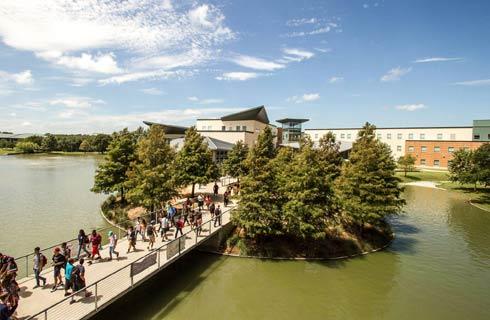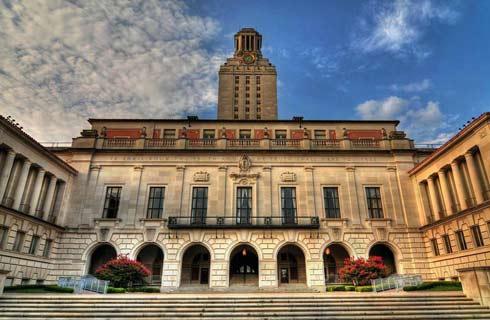环境研究理学学士
Bachelor of Science in Environmental Studies

学历文凭
Bachelor Degree

专业院系
Environmental Studies

开学时间

课程时长

课程学费

国际学生入学条件
You are considered a freshman applicant if you have completed secondary school and have not enrolled at any college or university.
English Language Proficiency
The minimum accepted score for admission consideration for the TOEFL is 80 or better on the Internet-based test and 550 or better on the paper-based test.
The minimum accepted score for the IELTS is 6.5 or better band score (academic modules).
IDP—雅思考试联合主办方

雅思考试总分
6.5
- 雅思总分:6.5
- 托福网考总分:80
- 托福笔试总分:550
- 其他语言考试:Duolingo English Test (DET): Minimum score of 115
CRICOS代码:
申请截止日期: 请与IDP联系 以获取详细信息。
课程简介
Environmental Studies (ES) trains and prepares students to be world-class leaders in multidisciplinary analysis, problem solving for environmental health and sustainability, and transformative social change in the 21st century. The program is highly interdisciplinary, and as a student in the program youll be able to explore a wide variety of environmental topics, drawing on concepts, theories, and research methods from the natural and physical sciences, social sciences, and humanities. Youll be encouraged to generate innovative ideas through research, and youll gain the scholarly background and practical skills needed to envision solutions to pressing environmental challenges and to become an agent for change for a healthy and just environment. The goal of the B.S. degree in Environmental Studies is to train students to become proficient in the natural and physical sciences while still understanding the important role social and cultural influences have on addressing today's environmental problems. The major curricular differences from the ES B.A. degree are a greater number of chemistry, calculus, biology, and physics courses. The majority of upper-division electives and the outside concentration requirements are focused on the physical and natural science disciplines. The Environmental Studies Program at UCSB was established as an academic program more than 50 years ago. It was one of the first such programs in the country and remains one of the strongest in terms of student demand and national reputation, with over 7,300 alumni.
相关申请
 预科
预科 奖学金
奖学金 实习机会
实习机会 在校学习
在校学习 跨境学习
跨境学习 校园授课-线上开始
校园授课-线上开始 在线/远程学习
在线/远程学习
开学时间&学费
学费信息仅供参考,请与IDP联系以获取详细信息
| 开学时间 | 时长 | 学费 | 地点 |
|---|
学校排名

世界排名52
数据源:
泰晤士高等教育世界大学排名
本校相关课程

教育哲学博士-文化与发展
学历文凭
Ph.D.
开学日期
课程费用总额


环境科学与管理哲学博士
学历文凭
Ph.D.
开学日期
课程费用总额


环境科学与管理硕士
学历文凭
Masters Degree
开学日期
课程费用总额


戏剧研究哲学博士
学历文凭
Ph.D.
开学日期
课程费用总额


戏剧研究文学硕士
学历文凭
Masters Degree
开学日期
课程费用总额


统计与应用概率论哲学博士
学历文凭
Ph.D.
开学日期
课程费用总额

其他相关课程

环境系统管理理学硕士[项目]
 德克萨斯农工大学金斯维尔分校
德克萨斯农工大学金斯维尔分校学历文凭
Masters Degree
开学日期
课程费用总额


Master of Science in Environmental Studies - Sustainable Food and Farming
 蒙大拿大学
蒙大拿大学学历文凭
Masters Degree
开学日期
课程费用总额


环境研究文学士[一般]
 女王大学
女王大学学历文凭
Bachelor Degree
开学日期
课程费用总额


环境研究文学士-环境历史与区域研究
 宾夕法尼亚大学
宾夕法尼亚大学泰晤士高等教育世界大学排名:14
学历文凭
Bachelor Degree
开学日期
课程费用总额


Bachelor of Science in Geology and Environmental Studies - Environmental Studies (uTrack Requirements)
 田纳西大学
田纳西大学学历文凭
Bachelor Degree
开学日期
课程费用总额


Bachelor of Science in Environmental Studies - Environmental Policy
 萨福克大学 - INTO USA
萨福克大学 - INTO USA学历文凭
Bachelor Degree
开学日期
课程费用总额











